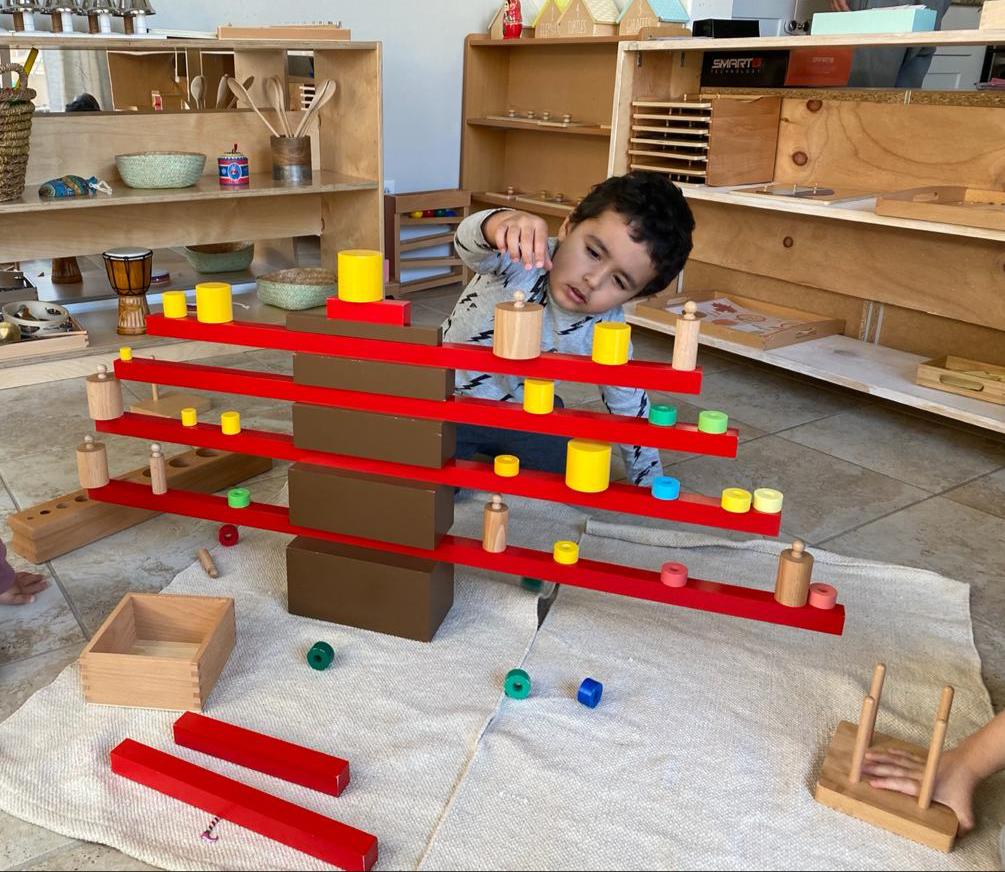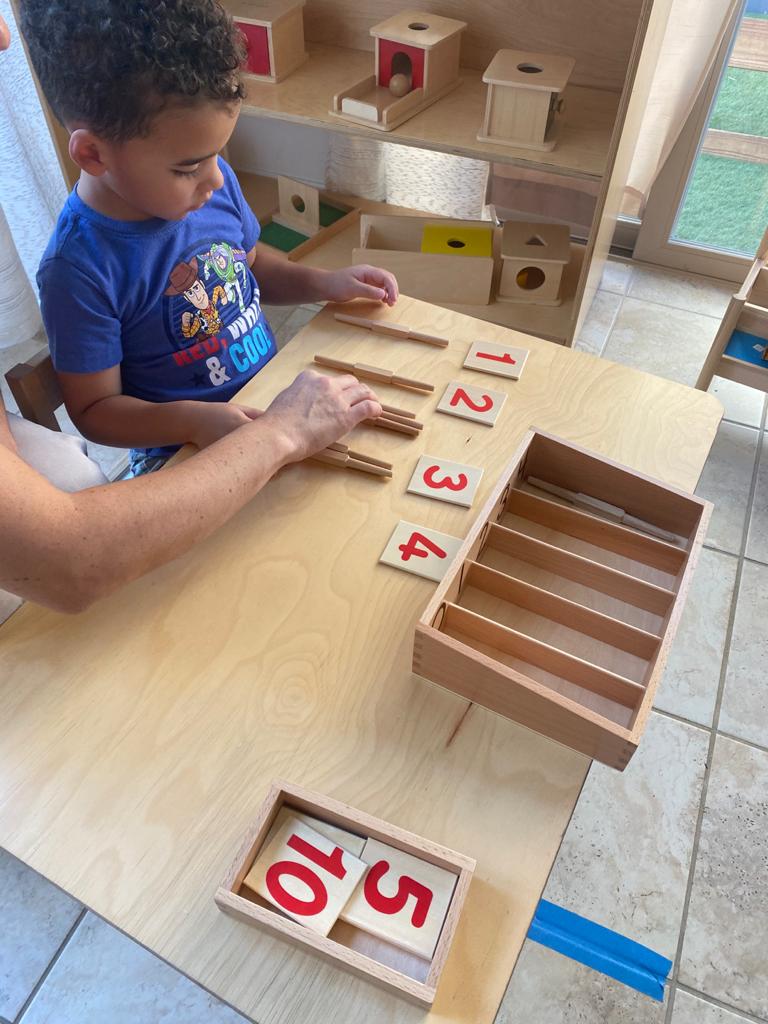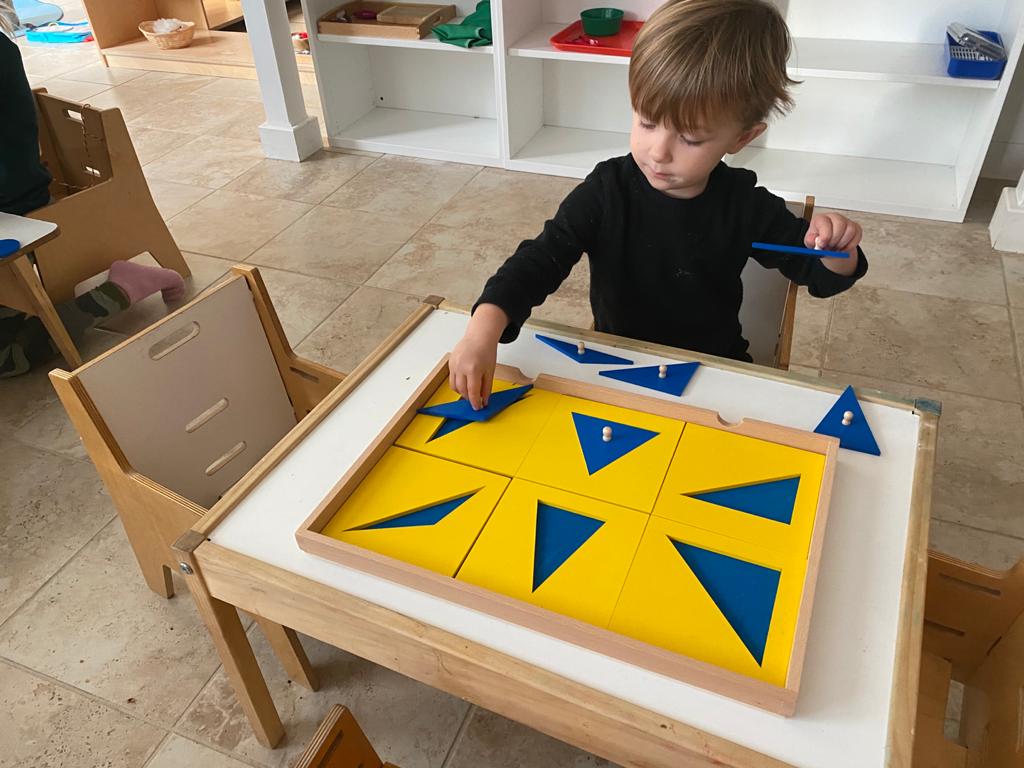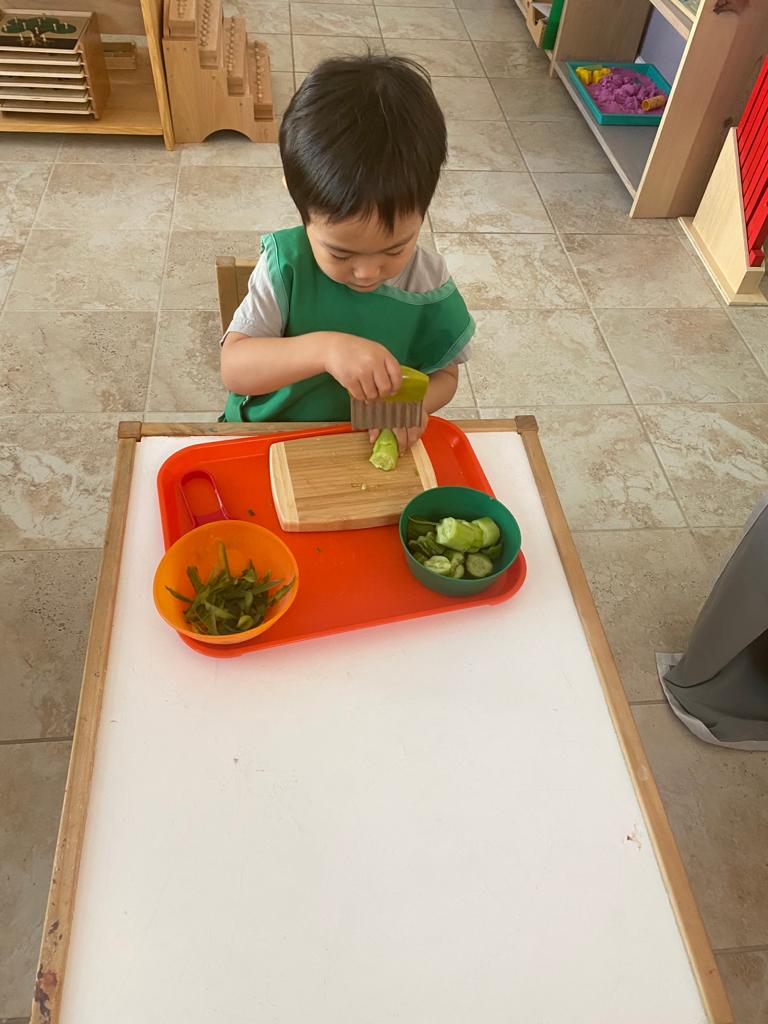Early Childhood
(preschool)
Early Childhood (Preschool) Program
Early childhood is a period of “conscious development” in which the previously created functions are refined. The child now consciously chooses experiences for the pure pleasure of doing. The more the child does, the greater his/her cognitive development. The child begins to name, sort, and categorize the environment. Through the impressions absorbed he begins to develop memory and is moving towards more complex mental abilities.
Signature Of The Montessori Class
- Mixed-age group
The Early Childhood is a start of the 3-year program cycle, where younger children benefit and learn from peers by natural motivation; and older children develop leadership skills by being mentors for the younger children.
- Prepared guide
Our teachers hold Montessori diplomas accredited by the International Montessori Society (IMS). You can find more information by visiting the “Our Teachers” page on our website.
In our classroom, an adult fosters cooperation, not competition. He helps the child cultivate concentration and respects engagement wherever it occurs.
- Prepared environment
We provide an environment that encourages independence and allows each child the freedom to direct their own lives and explore their own path to empowerment. Most of the lessons in the Montessori Early Childhood Classroom are best suited for individual or small group presentations, rather than large whole class presentations.
- Uninterrupted work cycle
Observation is a part of our daily routine. Based on our observation we prepare materials that feed the different needs of children, where everyone can work, engage and have a variety of options in order to increase concentration and extend the learning process.
- Montessori materials
Montessori materials are designed to give a child hands on experience in every subject. Children start from concrete learning and master their skills all the way to abstract thinking.
Practical Life
The Practical Life area is the foundation of the Montessori classroom. The activities of this area, which are highly appealing to young children, develop concentration, coordination, order, and independence. The child who has attained these essential skills is well prepared for success both in his present life and for a successful and meaningful future.
The Main Categories of the Practical Life Lessons
Grace and Courtesy
Practical skills
Care of person
Care of the environment
Food Preparation
Sensorial Area
Dr. Montessori recognized that the senses play a fundamental role in the development of the intellect. The purpose of the sensorial area is to aid the child in her development of the ability to reason and use her intellect. The sensorial materials serve as a scientific guide for the child to clarify, catalog, classify and put in order the impressions of her environment
Language
Our Montessori classroom offers numerous activities to build the muscular strength and motor coordination needed for writing. Using the sandpaper letters, the child engages the sense in learning the proper formation of written letters, while also learning to associate the letter sounds with the letter symbols.
Montessori classroom designates a specific language area with materials for developing oral language, writing, reading, and creative expression. The entire classroom is also designed to enrich and support language development. Prepared classroom materials possess opportunities to learn new vocabulary, explore the relationship of words, and encourage rich discussions. As the child begins to read and write he utilizes these new skills to rediscover and expand his classroom experience with materials throughout the environment. The goal of this important curricular area is to nurture the child’s natural interest in language so that he develops a love for reading, learning, and self-expression that can be treasured throughout his entire life.
Math
The beautiful Montessori manipulative math materials are designed to give the child an opportunity to explore number quantities and mathematical concepts with real hands-on activities. Each new math concept is isolated and presented in a way that gradually moves the child from the concrete to the abstract.
Cosmic Education
Cosmic Education includes activities in geography, history, art, music, and movement that bring life and richness to the Montessori environment. These are the lessons that connect the child with the world around him and give him a cosmic view of the universe. The activities in these areas are fun, creative, and intriguing.






